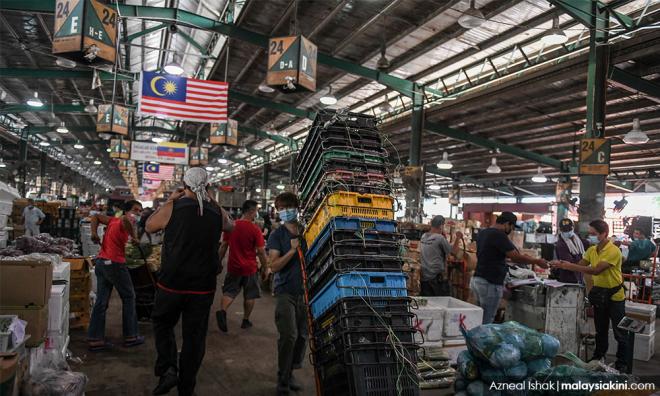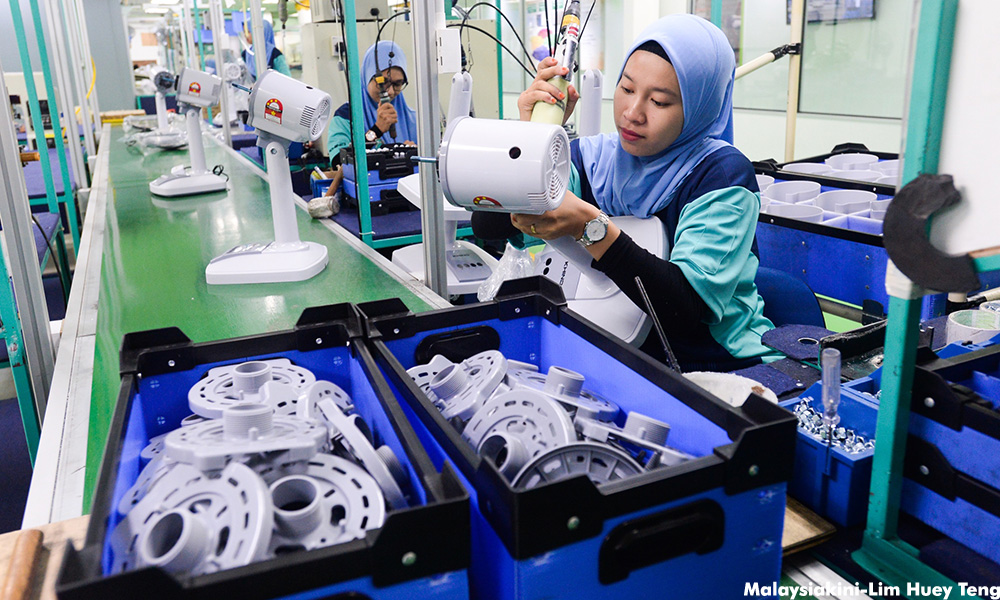
The government should be taking the current situation under the Covid-19 pandemic as an opportunity to reset the economy by addressing wage inequality and over-reliance on foreign labour, among others, said former Permodalan Nasional Berhad (PNB) CEO Abdul Jalil Rasheed.
"One thing that the government should be looking at is trying to take this current situation as an opportunity to reset the economy. Have a hard look and see where we really want to be in 10 to 15 years and what are going to be our key drivers of the economy," Jalil said in an interview in an online podcast called 'Bicara Minggu Ini'.
He said Malaysia had suppressed wages for a long time and some people are still being paid the same wages now as they were in the 1990s, despite the rise in inflation.
In the early 1990s, Malaysia was known as an 'Asian tiger' on the reasoning that Malaysia was a cheap place to do business with a relatively lower cost.
Jalil said that back then, Malaysia had the advantage as other countries such as China and Vietnam were still considered to have closed economies.
That is no longer the case now, as China and Vietnam have lower production costs than Malaysia, he said.

As such, the former PNB CEO said Malaysia needs to find a new competitive edge aside from low production cost borne from suppressed wages.
"I get extremely frustrated by companies coming in and saying 'we'll go out of business if we can't pay these wages'. That's where I think some tough decisions need to be taken.
"If you can't pay what should be the market rate, then you shouldn't be in business, or you should think about how to do your business in a more automated manner.
"The wage inequality in this country will be the biggest determinant as to whether we as a country will progress, otherwise we are just going to be so reliant on cheap labour," he said.
Bank Negara Malaysia's 2018 annual report noted that Malaysian workers receive lower compensation relative to their contribution to national income from productivity and equity perspectives, especially when benchmarked against the world's advanced economies.
An example was given by Bank Negara, where a Malaysian worker producing output worth US$1,000, the person would be paid US$340. The corresponding wage received by a worker in benchmark economies for producing the same US$1,000 worth of output was higher at US$510.
Jalil said one of the ways the government can address the wage inequality is to incentivise companies to gradually increase the minimum wage through financial aid meant to tide the companies over during the Covid-19 pandemic.

The financial aid can also be used to incentivise companies to reduce their foreign workers over a period of time.
"I'm not saying shock the system and do these things tomorrow but give a nice 10-year runway. Tie it to an objective, so in 10 years, there will be more automation, more locals employed, and we reduce our reliance on foreign labour.
"I think those things need to be done because if not, 10 years from now, we will be having the same conversation again," Jalil said.
Jalil stressed that such policies would have to be done gradually as Malaysia has not increased wages in a long time and doing so suddenly will be a huge shock on companies' financials.
"90 percent of employers are in SMEs (small and medium enterprises) who don't have much cash reserves. A drastic increase in wages will wipe them out, which is why I'm a proponent of this being done over a 10-year period.
"Have milestones so that there is visibility for companies to say 'okay, in 10 years this is what I need to do. So I can't sustain the wage increase but what I can do is perhaps take government grants and automate and reduce my reliance on workers'.
"Again, that must be enforced properly. As a country, I think everyone would agree, we're great in policies but bad in execution and implementation," he said.
Jalil said neighbouring countries had forced innovation and automation with some success, pointing to Singapore as an example.
"In Singapore several years ago, they said 'look, we're not going to approve your visas, we're going to increase the minimum wage, we're just going to make it expensive for you to hire foreign labour, but we'll give you grants for you to automate'.
"I think something like that should be done (in Malaysia). I think there's no quick win about this," he said. - Mkini



No comments:
Post a Comment
Note: Only a member of this blog may post a comment.